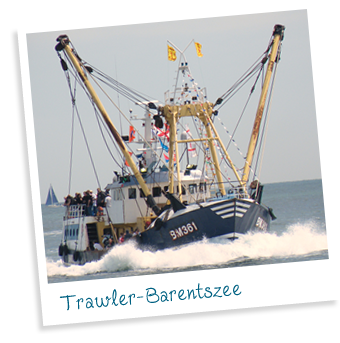| 1406 |
|
Brixham’s fishing community is regulated by the Bailiff of the Water of the Dart, Officer of the Duchy of Cornwall. |
| 1500s |
|
Brixham with its superior harbour becomes principal Torbay fishery, Hake is predominant fish landed. |
| 1724 |
|
Brixham vessels land pilchard catches at Dartmouth, as well as at their home port. |
| 1760s |
|
Use of trawl nets first mentioned in fishing in south Devon; Brixham fishermen play a leading role in their development. High value fish like turbot, sole and plaice landed. |
| 1785 |
|
76 decked trawlers operate out of Brixham; improved roads allow transportation of their fish catches to markets in Exeter, Bath and London. |
| 1820s |
|
89 decked trawlers operate out of Brixham, landing on average each week over 120 tons of turbot and sole. Brixham fleets now exploit fishing stocks westwards off the Irish and Welsh coasts, and eastwards off Hastings and Dover (in order to share directly in the London fishmarket). This extension of fishing activity carries the trawling tradition to the east cost fishing ports (culiminating later in 1858, in the emigration of Brixham fishing families to Grimsby and Hull earning Brixham the title of “The Mother of Britain’s deep sea fisheries”. |
| 1850 |
|
“Largest fishery in England…more than 270 sail of vessels employing 1600 seamen, belong to the port, and a large number are engaged in the fishery trade…average weekly quantity landed 150 tons..” Catches of turbot, sole, whiting, plaice, mullet, burnards, flounder, herring etc. Prime lots sent to Exeter, Bath, Bristol, and London. |
| 1869 |
|
Brixham railway (built 1868) begins to carry freight as well as passengers. Fish landed in Brixham (and packed in imported Norwegian ice) now reach London’s Billingsgate Fish Market in eight hours (compared to the three days it took by road). The rail link is an important factor in the expansion of the local fishing industry. |
| 1890s |
|
Increase catches are facilitated by two innovations: the introduction of steam capstans in place of handwinches and replacement of cutter-rigged trawlers with larger ketch-rigged vessels able to haul longer beam trawls.
Despite these technical advances, Brixham’s fishing industry generally suffers a decline. Brixham sailing trawlers operating in the most lucrative fishing grounds of the Dogger Bank are unable to compete with steam trawlers from east coast ports. |
| 1914-18 |
|
First World War marks the “Period of Disaster” for Brixham’s fishing industry: fishing smacks are sunk by German U-Boats and trawlers’ crews are called upon for naval service.
Even after hostilities cease, the legacy of the war continues to prove detrimental: there are heavy losses of Brixham trawlers resulting from collisions from numerous sunken ships along the costs, which also snag and cause damage to many trawl nets. |
| 1928 |
|
“Period of Collapse” in Brixham’s fishing industry. In this year 2160 tons of fish are landed at Brixham (compared with 94,000 ton landed at Hull by that port’s fishing fleet). |
| 1939 |
|
“Near Extinction” as the fishing fleet is reduced to six vessels.
|
| 1940 |
|
Second World War brings the arrival in Brixham of Belgian refugee fishermen who help to revitalize the town’s fishing trade and also introduce knowledge of diesel engines. |
| 1960 |
|
Brixham’s fishing industry experiences an upturn in its fortunes following adoption of the larger Dutch trawlers; a fisherman’s co-operative is formed in 1965, by 1966 the fishing fleet grows to forty five boats. |
| 1969 |
|
Value of fish landed at Brixham is £247,000. There are 70 vessels entered on the fishing boat register at Brixham. Of these 41 are full-time commercial fishing vessels, others used part time. |
| 1971 |
|
Fish market moves from inner harbour site to new fish quay; market building, ice-plant and repair slipway are repaired. |
| 1991 |
|
£456,000 improvements to Brixham fish quay completed (total cost over 20 years £4.6 million); fishing industry in Brixham employs directly and indirectly (in related jobs) over 836 people. Predominant fish landed are sole and plaice. |
| 2000 |
|
MAFF survey reveals Brixham is the premier fish port in England and Wales with annual landings totaling £18.4 million from 10366 fish of all species. |
| 2008 |
|
Brixham's fishermen celebrate the signing of a multi-million pound contract to regenerate Brixham's fish market. Work on this ambitious scheme which includes an upgrade of tourism facilities began in January 2008. |
| 2013 |
|
Brixham is the largest fish market in England with a turnover of 30 million! |
